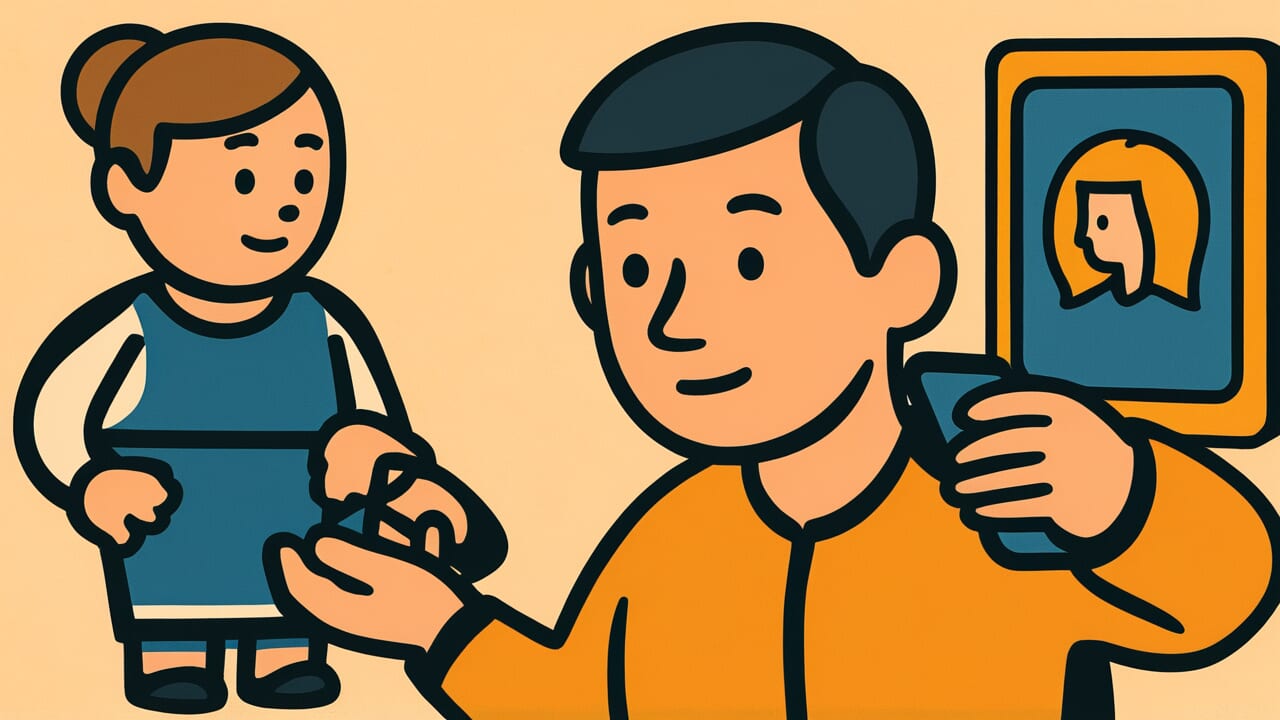How to Read “Your own things over other people’s things”
Hito no mono yori jibun no mono
Meaning of “Your own things over other people’s things”
“Your own things over other people’s things” teaches that your own possessions, even if modest, are more reliable and truly valuable than envying the impressive things others have.
This proverb is used when someone is envying what others have. It helps them recognize the value of their own possessions.
Borrowed items or other people’s things may look wonderful. But when you really need them, you can’t use them freely. You also have to be careful with them.
Your own things are different. Even if they’re old or small, you can use them however you want. There’s peace of mind in knowing they’re completely yours.
Today, social media makes it easy to see how others live. This makes us compare ourselves to them constantly.
But this proverb teaches something important. Practical value matters more than good looks. Your own satisfaction matters more than comparing yourself to others.
When you focus on what you already have and recognize its value, you find true richness.
Origin and Etymology
There are no clear records of when this proverb first appeared in literature. However, the structure of the phrase suggests it naturally emerged from Japanese daily life as practical wisdom.
The contrast between “other people’s things” and “your own things” is very simple. Yet it contains a deep truth.
This expression likely developed in farming villages and merchant households. These were cultures that valued taking care of possessions.
Tools borrowed from others might be impressive. But they’re hard to use because you’re not familiar with them. You also worry about breaking them.
Your own tools might be old and worn. But you know exactly how to use them. This gives you confidence. The proverb probably came from this experience.
Behind this teaching is a Japanese sense about ownership and responsibility. You naturally feel attachment to your own things. You want to take good care of them.
You can repair and maintain them as you see fit. These real-life feelings support this proverb.
The saying values certainty and peace of mind over material wealth. This entire philosophy is condensed into these few words.
Usage Examples
- I’d rather drive my old car than borrow a friend’s luxury car because I can relax more—your own things over other people’s things
- Some people feel more secure in a small house they own than a fancy rental apartment—that’s exactly the idea of your own things over other people’s things
Universal Wisdom
The proverb “Your own things over other people’s things” has been passed down through generations. It contains deep insight into fundamental human desires and anxieties.
Everyone has moments when they envy what others have. The grass always looks greener on the other side. This is part of human nature.
But humans also instinctively feel anxious about things outside their control. No matter how wonderful something is, you can’t feel truly at ease if it’s not completely under your management.
This proverb gets to the essence of ownership. Ownership isn’t just a legal right. It’s a source of psychological security.
Your own things, even if less valuable, can be used freely. You can break them without anyone complaining. They’re always available to you. This certainty is what brings peace of mind.
Our ancestors understood something important. Spiritual stability matters more in life than pursuing material wealth.
Don’t measure happiness by comparing yourself to others. Find value in what you definitely have. This brings true peace of mind.
This universal truth is packed into this simple proverb.
When AI Hears This
People value things they own more highly than when they don’t own them. This phenomenon is called the “endowment effect.” Behavioral economist Daniel Kahneman proved it through experiments.
For example, college students were given mugs. Students who received mugs wanted to sell them for an average of $7. Students who didn’t receive mugs would only pay an average of $3.
It’s the same mug. But the moment someone owns it, its value more than doubles.
Behind this phenomenon is a brain mechanism called “loss aversion.” The human brain is wired to feel the pain of losing something about twice as strongly as the joy of gaining it.
Giving up your own thing is processed as a “loss.” Getting someone else’s thing is merely an “acquisition.”
The feeling that “your own things are better,” as this proverb says, isn’t objective value judgment. It’s an illusion your brain automatically creates.
What’s interesting is that this effect kicks in after owning something for just seconds. Just touching or seeing something creates the perception of “my thing.” The value inflates immediately.
This mechanism likely evolved as a defensive instinct. It helped our ancestors hold onto limited resources.
The proverb seems to teach morality. But actually, it’s putting human cognitive bias into words.
Lessons for Today
This proverb teaches modern people wisdom to escape the trap of comparison. We constantly see other people’s lives on social media and feel envious.
We compare friends’ successes to ourselves and feel down. This happens every day in modern society.
But such comparisons make you blind to the value of what you already have.
What matters is focusing on what you definitely possess. This isn’t just material things.
Your experiences, knowledge, relationships, time, and health are all “your own things.” No one can take them from you. They’re resources you can use freely.
Knowledge borrowed from others won’t build real confidence. Neither will superficially copying someone else’s lifestyle.
What you’ve learned from your own experience matters. What you’ve built with your own hands matters. These are what support you during life’s difficult moments.
Starting today, try something different. Stop spending time comparing yourself to others. Instead, spend that time examining what you have.
Cherish something small but definitely yours. This leads to unshakable confidence and mental stability.



Comments